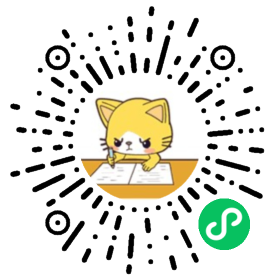【判断题】
《中国共产党问责条例》规定,问责决定作出后,应当及时向被问责党组织或者党的领导干部及其所在党组织宣布并督促执行
查看试卷,进入试卷练习
微信扫一扫,开始刷题

相关试题
【判断题】
党的问责工作是由党组织按照人事权限予以追究
【判断题】
党的问责工作追究的只是在党的建设和党的事业中失职失责的党的领导干部的主体责任和领导责任
【判断题】
对履行职责不力、情节较重的党组织应当责令整改,并在一定范围内予以通报
【判断题】
对失职失责、情节较轻的党的领导干部,应当严肃批评,并在一定范围内通报
【判断题】
对失职失责、情节较重的党的领导干部,不适宜担任现职的,应当根据情况采取停职检查、调整职务、责令辞职、降职、免职等措施
【判断题】
对党的领导干部的问责方式,可以单独使用,也可以合并使用
【判断题】
党的领导主要是政治、思想和组织的领导。党必须按照总揽全局、协调各方的原则,在同级各种组织中发挥主体作用。
【单选题】
Read this pasaage and answer the five questions
That people often experience trouble sleeping in a different bed in unfamiliar surroundings is a phenomenon known as the “first-night” effect. If a person stays in the same room the following night they tend to sleep more soundly. Yuka Sasaki and her colleagues at Brown University set out to investigate the origins of this effect.
Dr. Sasaki knew the first-night effect probably has something to do with how humans evolved. The puzzle was what benefit would be gained from it when performance might be affected the following day. She also knew from previous work conducted on birds and dolphins that these animals put half of their brains to sleep at a time so that they can rest while remaining alert enough to avoid predators (捕食者). This led her to wonder if people might be doing the same thing. To take a closer look, her team studied 35 healthy people as they slept in the unfamiliar environment of the university’s Department of Psychological Sciences. The participants each slept in the department for two nights and were carefully monitored with techniques that looked at the activity of their brains. Dr. Sasaki found, as expected, the participants slept less well on their first night than they did on their second, taking more than twice as long to fall asleep and sleeping less overall. During deep sleep, the participants’ brains behaved in a similar manner seen in birds and dolphins. On the first night only, the left hemispheres (半球) of their brains did not sleep nearly as deeply as their right hemispheres did.
Curious if the left hemispheres were indeed remaining awake to process information detected in the surrounding environment, Dr. Sasaki re-ran the experiment while presenting the sleeping participants with a mix of regularly timed beeps (蜂鸣声) of the same tone and irregular beeps of a different tone during the night. She worked out that, if the left hemisphere was staying alert to keep guard in a strange environment, then it would react to the irregular beeps by stirring people from sleep and would ignore the regularly timed ones. This is precisely what she found.
Question1:
What did researchers find puzzling about the first-night effect?
A. What role it has played in evolution.
B. To what extent it can trouble people.
C. What circumstances may trigger it.
D. In what way it can be beneficial. .
【单选题】
Question2:
What do we learn about Dr. Yuka Sasaki doing her research?
A. She found birds and dolphins remain alert while asleep.
B. She found birds and dolphins sleep in much the same way.
C. She got some idea from previous studies on birds and dolphins.
D. She conducted studies on birds’ and dolphins’ sleeping patterns.
【单选题】
将辅助生产车间费用直接分配给辅助生产以外各收益单位的方法是___。
A. 直接分配法
B. 一次交互分配法
C. 代数分配法
D. 计划成本分配法
【单选题】
在产品只计算材料成本,主要适合于___的产品。
A. 月末在产品数量较大,但各月大体相同
B. 定额资料比较完整
C. 直接材料费用在产品成本中所占比重较大
D. 工资和其他费用发生比较均衡
【单选题】
计算月末在产品约当量的依据是___。
A. 月末在产品数量
B. 本月完工产品数量
C. 月末在产品数量和完工程度
D. 月末在产品定额成本和定额工时
【单选题】
废品损失最终应转入___账户,由同种的合格品成本负担。
A. 制造费用
B. 管理费用
C. 基本生产成本
D. 辅助生产成本
【单选题】
管理上要求分步计算半成品成本时,应当采用___。
A. 分类法
B. 平行结转分步法
C. 逐步结转分步法
D. 分批法
【单选题】
下列成本计算方法中,成本计算期与生产周期一致的有___。
A. 品种法
B. 分类法
C. 分批法
D. 分步法
【单选题】
成本计算的基本方法命名的依据是___。
A. 成本计算对象
B. 成本计算期
C. 生产周期
D. 生产费用的分配方法
【单选题】
下列各项中,属于成本项目的是___。
A. 外购材料
B. 外购动力
C. 制造费用
D. 利息费用
【单选题】
实际工作中的产品成本是指产品的___。
A. 全部成本
B. 采购成本
C. 销售成本
D. 制造成本
【单选题】
在一般情况下,下列企业中适合选择平行结转分步法的有___。
A. 纺织
B. 采掘
C. 冶金
D. 重型机械制造
【单选题】
下列方法中不属于产品成本计算的基本方法的是___。
A. 品种法
B. 分类法
C. 分批法
D. 分步法
【单选题】
企业按生产工艺过程的特点分类,制造企业可分为___。
A. 简单生产和单步骤生产
B. 复杂生产和单步骤生产
C. 多步骤生产和单步骤生产
D. 大量生产和成批生产
【单选题】
下列属于完工产品与在产品费用的分配方法是___。
A. 生产工时比例法
B. 直接分配法
C. 定额耗用量比例分配法
D. 约当产量法
【单选题】
将上一步骤转入的半成品成本全部计入下一步骤成本计算单中的“自制半成品或“原材料”成本项目,这种成本结转方式称为___。
A. 分项结转
B. 平行结转
C. 成本还原
D. 综合结转
【单选题】
半产品成本流转与实务流转相一致,又不需要成本还原的方法是___。
A. 综合结转分步法
B. 逐步结转分步法
C. 分项结转分步法
D. 平行结转分步法
【单选题】
采用分步法时,为反映原始成本项目,必须进行成本还原的是___。
A. 综合结转法
B. 分项结转法
C. 分批法
D. 分类法
【单选题】
下列属于成本计算辅助方法是___。
A. 品种法
B. 分类法
C. 分批法
D. 分步法
【单选题】
下列不属于成本报表的是___。
A. 产品生产成表
B. 主要产品单位成本表
C. 现金流量表
D. 制造费用明细表
【单选题】
辅助生产车间耗用的机物料,在辅助生产车间设置制造费用账户的前提条件下,应借记的账户是___。
A. 制造费用
B. 管理费用
C. 基本生产成本
D. 辅助生产成本
【单选题】
单设废品损失成本项目时,企业发生的废品损失最终应记入下列账户的借方___。
A. 基本生产成本
B. 废品损失
C. 制造费用
D. 管理费用
【单选题】
下列方法中,属于辅助生产费用分配方法的是___。
A. 定额成本法
B. 计划成本分配法
C. 生产工时比例分配法
D. 机器工时比例分配法
【单选题】
甲产品由两道工序组成,采用在产品按定额成本计价法分配计算完工产品和月末在产品费用。各工序的工时定额为:第一工序32小时,第二工序12小时。第二工序在产品的累计工时定额为___。
A. 16小时
B. 38小时
C. 44小时
D. 22小时
【单选题】
完工产品材料定额成本应该等于___乘以单位产品材料费用定额。
A. 本月投入产品数量
B. 月初在产品数量
C. 本月完工产品数量
D. 月末在产品数量
【单选题】
品种法适用的生产组织是___。
A. 大量成批生产
B. 大量大批生产
C. 大量小批生产
D. 单件小批生产
【单选题】
成本还原的对象是___。
A. 产成品成本
B. 各步骤所耗上一步骤半成品的综合成本
C. 最后步骤的产成品成本
D. 各步骤半成品成本
【单选题】
采用平行结转分步法,在完工产品与在产品之间分配费用,是指在___之间的费用分配。
A. 产成品与月末在产品
B. 完工半成品与月末加工中的在产品
C. 产成品与广义的在产品
D. 前面步骤的完工半成品与加工中的在产品及最后步骤的产成品与加工中的在产品
【单选题】
直接用于产品生产的燃料,应直接计入或分配计入的科目是___。
A. “制造费用”
B. “管理费用”
C. “财务费用”
D. “基本生产成本”
【单选题】
辅助生产各种分配方法中,能分清内部经济责任.有利于实行厂内经济核算的是___
A. 直接分配法
B. 交互分配法
C. 顺序分配法
D. 计划成本分配法
【单选题】
完工产品与在产品之间分配费用,采用在产品按所耗原材料费用计价法,适用于___的产品。
A. 各月末在产品数量较大
B. 各月末在产品数量变化较大
C. 原材料费用在产品成本中比重较大
D. 以上三个条件同时具备
【单选题】
辅助生产费用交互分配后的实际费用,再在___。
A. 辅助生产以外的各受益单位之间分配
B. 各受益单位之间分配
C. 各辅助生产车间之间分配
D. 各受益的基本生产车间进行分配
【单选题】
完工产品与在产品之间分配费用,采用约当产量比例法适用于下列产品___。
A. 各月末在产品数量较大
B. 各月末在产品数量虽大,但各月之间变化不大
C. 各月成本水平相差不大
D. 各月末在产品数量变化较大
推荐试题
【填空题】
17.___空调故障继续运营至前方终点站,复位相应车的故障空调空开,若复位成功后则继续运营,若复位不成功则退出服务。
【填空题】
18.___空调故障,运营到前方终点站退出服务。
【填空题】
19.___由EBCU供电,将载荷压力反馈给EBCU。
【填空题】
20.___反馈总风压力给EBCU,用于压力保护逻辑控制和压缩机启动控制。
【填空题】
21.___反馈制动风缸压力,用于制动风缸压力低判断。
【填空题】
22.___反馈本车制动施加/缓解状态,输出给车辆。
【填空题】
23.___反馈停放制动状态,输出给车辆。
【填空题】
24.辅助电源箱冷却系统采用___方式实现对逆变器模块,电抗器,变压器,充电机模块等发热器件的散热。
【填空题】
25.若某台SIV故障,另一个辅助电源可通过___为整列车的基本负载供电。
【填空题】
26.当直流电源严重溃电时,为保证列车能够激活,可按压___为SIV提供启动所需控制电源。
【填空题】
27.有电无气升弓时,到Mp车升弓柜,用方孔钥匙打开柜门,取出脚踏泵,将___旋钮打至垂直位置。
【填空题】
28.踩压脚踏泵至气压大于___受电弓应升起,电客车所有照明应为正常照明,高压设备工作,压缩机打风,另一端的受电弓自动升起。
【填空题】
无电无气升弓时,按压A车继电器柜面板上充电机应急启动按钮=31-S104 ,Tc车___应启动。
【判断题】
法律关系的内容是指法律关系主体所享有的权利和承担的义务,其中承担的义务可以
是积极义务,不可以是消极义务
【判断题】
位于A市的甲公司与位于B市的乙公司,在C市签订一份劳务合同,合同履行地在D市,双方在合同的仲裁条款中约定因履行本合同发生的一切争议,由当事人协商解决,协商不成,提交E市仲裁委员会仲裁。该仲裁协议合法有效
【判断题】
仲裁实行一裁终局原则,因此当事人达成和解协议并撤销仲裁申请后又反挣的,可以再就同一事项申请仲裁
【判断题】
甲、乙因房屋纠纷欲提起诉论,则对该案件享有管辖权的法院是房屋所在地法院
【判断题】
北京的候某与南京的赵某签订一份借款合同,双方在合同中约定,因本合同发生的一切争议由双方协商解决,协商不成,双方一致同意向南京市中级人民法院起诉。该约定符合法律规定
【判断题】
甲公司与乙银行订立一份做款合同人要公司到频本还本什息。乙银行于还本付息期限届满后1年零6个月时向有管辖权的人民法院对甲公司提起诉讼,要求甲公司偿还本金、支付利息并承担违约责任。乙银行的行为引起诉讼时效中断
【判断题】
行政法规的法律效力次于宪法和法律,高于地方性法规和规章
【判断题】
甲公司生产产品后剩余的原材料边角料对外销售的金额不计入会计账簿,而另设小金库,用于职工日常福利,该行为符合法律规定
【判断题】
甲公司向乙公司购买一批产品,取得增值税专用发票士注明的价款为100万元,税额为17万元,后发现合同约定价税合计金额为100万元,该发票不能更正,只能由乙公司
重开
【判断题】
记账凭证的保管期限和银行对账单的保管期限一致
【判断题】
注册会计师无法获取充分、适当的审计证据以作为形成审计意见的基础,但认为未发现的错报(如存在)对财务报表可能产生的影响重大,但不具有广泛性,应当发表无法表
示意见的审计报告
【判断题】
老赵为某国有企业的负责人,他将其朋友的妻子张某安排在本部门担任会计机构负责人,他的这一行为违背了会计人员回避制度
【判断题】
会计职业道德规范中的“廉洁自律”的基本要求是树立正确的人生观和价值观、保密守信,不为利益所诱惑
【判断题】
除国家法律、行政法规和国务院规定外,任何单位和个人不得强令存款人到指定银行开立银行结算账户
【判断题】
赵某拟向招商银行来支行错款40万元,已知赵某在该支行未开立任何银行结算账户,则赵某应当在该支行开立一般存款账户,用于借款转存
【判断题】
申请成为银行卡清算机构的,注册资本不低于5亿元人民币
【判断题】
收款人对同一付款人发货托收累计3次收不回货款的,收款人开户银行应暂停其向外办理托收
【判断题】
在票据丧失后,可以不进行挂失止付,但必须进行公示催告程序,若直接针对该票据的承兑人或出票人提起普通诉讼法院不予受理
【判断题】
甲公司从乙公司处购买一批原材料,为支付货款,向乙公司签发一张3个月后到期的银行承兑汇票,票据到期的第二天,乙公司持该汇票向承兑人提示付款,承兑人以甲公司账户余额不足为由拒绝付款,承兑人拒绝付款的做法符合法律规定
【判断题】
甲公司签发一张商业汇票给乙公司,乙公司将该汇票背书转让给丙公司并在票据背面注明“不得转让”字样,此行为属于附条件的背书
【判断题】
汇票上未记载承兑日期的,承兑行为无效。()
电子商业汇票的提示付款日,为自票据到期之日起10天。()
【判断题】
北京的甲公司为履行与乙公司的买卖合同,签发一张由本公司承兑的商业汇票交付乙公司,汇票收款人为乙公司,到期日为4月6日。2月16日,乙公司将该汇票背书转让给南京的丙公司,3月18日,丙公司持该汇票向其开户银行办理贴现,该汇票的贴现天数是19天
【判断题】
税收法律关系的内容是指税收法律关系主体双方的权利和义务所共同指向的对象
【判断题】
除个体经营者外,其他个人不属于增值税一般纳税人
【判断题】
将建筑物的广告位出租给其他单位用于发布广告,应按照“广告服务”税目计缴增值税



